Text
What are some positive aspects of the healthcare system?

The healthcare industry, particularly in Washington State with associations like the Washington Hospital Association (WHA) and the Columbia Hospital Association (CHA), boasts several positive aspects that contribute to its overall effectiveness and quality of care:
Cutting-edge Technology: Hospitals and healthcare facilities in Washington State leverage advanced technologies for diagnosis, treatment, and patient care. This includes state-of-the-art medical equipment, electronic health records (EHRs), telemedicine services, and innovative surgical techniques.
Skilled Healthcare Professionals: The industry is home to highly trained and skilled healthcare professionals, including doctors, nurses, technicians, and support staff. Their expertise ensures patients receive top-notch medical attention and personalized care.
Research and Development: Washington’s healthcare system invests significantly in research and development (R&D) to improve treatments, discover new therapies, and enhance medical practices. This commitment to innovation benefits patients by offering access to cutting-edge medical advancements.
Collaborative Network: The healthcare industry in Washington operates within a collaborative network that fosters partnerships between hospitals, clinics, medical professionals, and research institutions. This interconnectedness promotes seamless coordination of care and facilitates information sharing for better patient outcomes.
Patient-Centered Care: A focus on patient-centered care is a hallmark of the healthcare system in Washington. This approach prioritizes the individual needs, preferences, and well-being of patients, ensuring they are active participants in their healthcare journey.
Comprehensive Services: Healthcare facilities affiliated with WHA and CHA offer a wide range of services, from primary care and preventive medicine to specialized treatments for complex medical conditions. This comprehensive approach ensures that patients can access all necessary healthcare services under one roof.
Community Engagement: The healthcare industry actively engages with local communities through outreach programs, health education initiatives, and wellness campaigns. This proactive engagement promotes public health awareness and encourages healthy lifestyle choices.
Quality and Safety Standards: Washington’s healthcare system upholds rigorous quality and safety standards, ensuring that patients receive high-quality care in safe environments. This commitment to excellence is reflected in accreditation processes, quality improvement initiatives, and patient satisfaction metrics.
Overall, the healthcare system in Washington State, supported by organizations like WHA and CHA, demonstrates a commitment to excellence, innovation, and patient-centric care, making it a valuable asset to the community.
To know more visit: https://dcha.org/
0 notes
Text
Why is diagnostic health care important?
Diagnostic healthcare is crucial for several reasons within the health care industry. It helps in the early detection and treatment of diseases, which can improve patient outcomes and reduce healthcare costs.
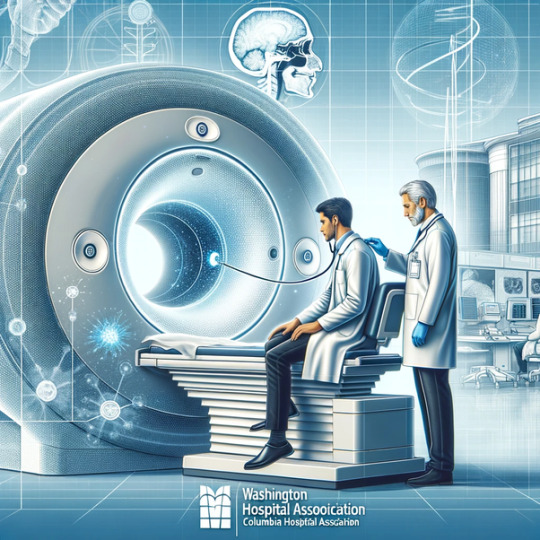
Organizations like the Washington Hospital Association and the Columbia Hospital Association emphasize the importance of diagnostic healthcare in their regions. They support efforts to improve access to diagnostic services, promote advancements in diagnostic technologies, and advocate for policies that enhance diagnostic capabilities.
In addition, diagnostic healthcare plays a key role in preventive care, helping individuals identify risk factors for diseases and take proactive measures to maintain their health. Overall, diagnostic healthcare is essential for improving patient care, reducing healthcare disparities, and advancing medical research and innovation.
0 notes
Text
What are some high-paying jobs in health informatics, clinical engineering, or biomedical equipment technology that do not require a degree?
In the healthcare industry, there are several high-paying jobs in health informatics, clinical engineering, or biomedical equipment technology that may not require a formal degree but instead require specialized training, certifications, or experience. Here are some examples:
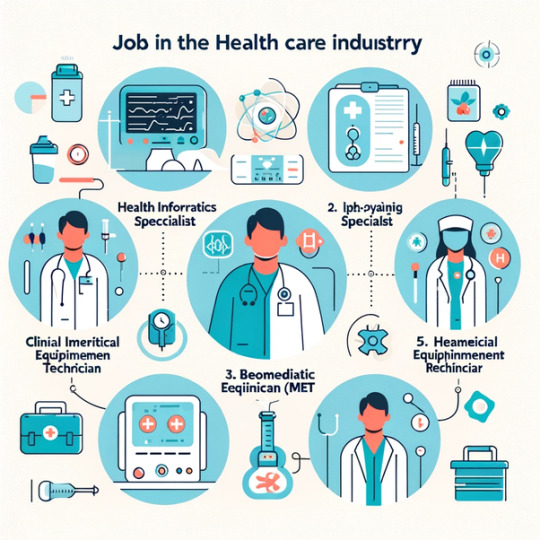
Health Informatics Specialist: While some positions may require a degree, there are roles within health informatics that focus more on practical experience with electronic health records (EHR) systems, data analysis, and information management. Certifications like the Certified Health Data Analyst (CHDA) or Registered Health Information Technician (RHIT) can be valuable.
Clinical Engineering Technician: These professionals maintain and repair medical equipment. While a degree can be beneficial, hands-on experience and certifications like the Certified Biomedical Equipment Technician (CBET) can be sufficient for entry-level positions.
Biomedical Equipment Technician (BMET): Similar to clinical engineering technicians, BMETs work on maintaining and repairing medical devices. Technical training programs and certifications can provide the necessary skills without the need for a degree.
Health Information Technician: Focused on managing patient data and medical records, this role can often be entered with a postsecondary certificate and professional certification, such as the RHIT.
Medical Equipment Repairer: Specializing in the repair and maintenance of medical equipment, this position may require technical training or an associate degree, but there are opportunities for those with strong mechanical skills and relevant experience.
Organizations like the Washington Hospital Association and the Columbia Hospital Association may offer resources, training programs, and networking opportunities for individuals seeking careers in these fields within their respective regions. It's also advisable to check job listings and requirements in your specific area, as they can vary.
0 notes
Text
How many health plan enrollees does Health Care Service Corp. have?

In the context of the health care industry, Health Care Service Corporation (HCSC) plays a significant role with its extensive membership base. HCSC boasts 18 million members across the states it operates in, including Illinois, Montana, New Mexico, Oklahoma, and Texas. This extensive membership underscores HCSC's importance in the health care industry, particularly in light of its ongoing expansion into the Medicare Advantage (MA) market. Such expansions and the size of its enrollee base have implications for health care services, including those associated with hospital associations like the Washington Hospital Association and the Columbia Hospital Association, which aim to support health care facilities and professionals in their respective regions. The growth and operational strategies of large health plan providers like HCSC can influence health care delivery, policy, and the broader ecosystem, including how hospitals and health systems navigate insurance networks and patient care strategies
0 notes
Text
What is the most powerful health care?
When evaluating the most powerful healthcare system within the healthcare industry, it's essential to consider various factors including accessibility, quality of care, cost-effectiveness, and health outcomes. Different countries have different healthcare systems, each with its strengths and weaknesses.

For example:
Single-Payer Healthcare: Systems like those in Canada and the UK provide universal coverage funded by taxes, ensuring access to care for all citizens regardless of income. This model emphasizes equitable access but may face challenges with long wait times for certain procedures.
Multi-Payer Systems: Found in countries like Germany and Switzerland, these systems combine public and private funding. They often offer a high standard of care and timely access to services but may be more complex administratively and could result in disparities in access based on income.
National Health Insurance: Seen in countries like Japan and South Korea, this system is similar to single-payer but typically involves multiple insurance providers, often with the government as the primary insurer. It provides universal coverage but may require co-payments.
Out-of-Pocket Systems: In some countries, healthcare is primarily paid for directly by individuals. This can lead to significant disparities in access and quality of care, with those who can afford it receiving better treatment.
When examining healthcare systems, it's also relevant to consider the involvement of industry associations such as the Washington Hospital Association and the Columbia Hospital Association. These associations often play crucial roles in advocating for policies, facilitating collaboration among healthcare providers, and ensuring the delivery of high-quality care within their respective regions. Determining the "most powerful" healthcare system within the healthcare industry involves assessing its ability to meet the needs of the population effectively, efficiently, and equitably. Factors such as healthcare outcomes, satisfaction rates, and overall public health indicators would be essential considerations.
0 notes
Text
What is the difference between healthcare management and hospital management?
The difference between healthcare management and hospital management, especially within the context of the healthcare industry, and considering organizations like the Washington Hospital Association and Columbia Hospital Association, involves the scope and focus of management practices.

Healthcare Management:
Scope: Healthcare management is a broad field that encompasses the administration, management, and leadership of healthcare systems, hospitals, networks, and healthcare-related organizations. It focuses on the overall health system, which can include a variety of settings such as clinics, hospitals, and home care services.
Focus: The primary focus is on the administration of healthcare services. It involves strategic planning, resource allocation, human resources management, and policy formulation across various types of healthcare facilities. Healthcare managers work to improve the efficiency and quality of healthcare services while also attending to the needs of the general population and specific communities.
Role in Associations: In the context of associations like the Washington Hospital Association or Columbia Hospital Association, healthcare management professionals might engage in policy advocacy, public health initiatives, and the development of industry standards that benefit the entire healthcare industry.
Hospital Management:
Scope: Hospital management is more specific and is centered on the administration of hospitals only. It involves managing all aspects of a hospital’s operations, including medical, administrative, financial, and legal aspects, but within the confines of a single hospital or hospital network.
Focus: The focus is on the effective and efficient operation of the hospital itself. This includes managing staff, budgeting, patient care services, and ensuring compliance with health laws and regulations. The objective is to provide high-quality patient care in a safe and efficient manner.
Role in Associations: In associations like the Washington Hospital Association or Columbia Hospital Association, hospital management professionals might be involved in addressing hospital-specific issues, networking with peers from other hospitals, and sharing best practices specifically related to hospital operations.
In summary, while both fields are integral to the health care industry and involve managing healthcare services, healthcare management has a broader scope encompassing the entire healthcare system, whereas hospital management is specifically focused on the operations of hospitals. Associations like the Washington and Columbia Hospital Associations play a role in both areas by providing a platform for collaboration, advocacy, and the sharing of best practices relevant to their specific focuses.
0 notes
Text
What is the importance of physician credentialing in the healthcare industry?
Physician credentialing plays a crucial role in the healthcare industry, ensuring that healthcare providers meet specific standards and qualifications. The Washington Hospital Association and Columbia Hospital Association, as key stakeholders in the healthcare industry, emphasize the importance of credentialing for several reasons:

Patient Safety: Credentialing helps ensure that healthcare providers are qualified, competent, and adhere to professional standards. This is vital for patient safety, as it reduces the risk of medical errors and ensures that patients receive high-quality care.
Regulatory Compliance: Credentialing is often a requirement for healthcare providers to comply with state and federal regulations. The Washington Hospital Association and Columbia Hospital Association may advocate for and establish credentialing standards to meet regulatory requirements, promoting consistency and accountability in the industry.
Quality of Care: Credentialing helps maintain and enhance the overall quality of healthcare services. By verifying a physician's education, training, and experience, healthcare organizations can be confident that they are employing qualified professionals capable of delivering effective and safe care.
Insurance Reimbursement: Insurance companies often require healthcare providers to be credentialed to ensure that they are eligible for reimbursement. Credentialing helps healthcare organizations navigate the complex process of insurance billing and reimbursement, contributing to financial stability in the healthcare industry.
Professional Integrity: Credentialing establishes and upholds the professional integrity of the healthcare industry. It ensures that healthcare providers adhere to ethical standards and conduct themselves in a manner consistent with the values of the Washington Hospital Association and Columbia Hospital Association.
Network Participation: Credentialing is often a prerequisite for healthcare providers to join and participate in healthcare networks, including those affiliated with the Washington Hospital Association and Columbia Hospital Association. Being part of these networks can facilitate collaboration, information sharing, and resource allocation among healthcare professionals.
Legal Protection: Credentialing provides a level of legal protection for healthcare organizations. By thoroughly vetting healthcare providers, organizations can mitigate the risk of legal challenges related to negligent hiring or inadequate supervision.
In summary, physician credentialing is a vital process in the healthcare industry, contributing to patient safety, regulatory compliance, quality of care, financial stability, professional integrity, network participation, and legal protection. The involvement and advocacy of organizations like the Washington Hospital Association and Columbia Hospital Association further emphasize the importance of maintaining high standards in healthcare delivery.
0 notes
Text
How does the healthcare vendor management system increase hospital efficiency? Does it help the hospitals to offer the best healthcare facilities?
A healthcare vendor management system is crucial in improving hospital efficiency within the healthcare industry, including organizations like the Washington Hospital Association and the Columbia Hospital Association. It does so by streamlining and optimizing various vendor relationships and supply chain management aspects, ultimately contributing to better healthcare facilities.

Cost Savings: Vendor management systems help hospitals negotiate better pricing with suppliers and reduce costs. This is particularly important in the healthcare industry, which often faces budget constraints. The savings achieved can be redirected towards improving patient care, acquiring better medical equipment, and hiring skilled staff.
Resource Allocation: By automating and simplifying procurement and inventory management, healthcare vendor management systems free up staff resources. Hospital employees can focus on core healthcare activities rather than spending excessive time on administrative tasks related to procurement and vendor communication.
Quality Assurance: Vendor management systems enable hospitals to ensure that the products and services they receive meet the highest quality and safety standards. This is essential in the health care industry, where patient well-being is the top priority. These systems help hospitals maintain a strict level of quality control.
Inventory Control: Efficient vendor management can lead to optimized inventory levels. Hospitals can maintain an adequate stock of critical supplies while avoiding overstocking, which can lead to wastage and increased costs. This saves money and helps provide better healthcare facilities by having the necessary resources on hand when needed.
Timely Delivery: Timely delivery of medical supplies is crucial for patient care. Vendor management systems ensure that hospitals receive supplies on time, reducing the risk of shortages and disruptions in healthcare services.
Compliance and Accountability: In the health care industry, compliance with regulations is paramount. Vendor management systems help hospitals maintain compliance with industry and governmental standards. They also ensure accountability by providing detailed records of all transactions and interactions with vendors.
Vendor Selection: Effective vendor management systems aid in selecting reliable and trusted vendors. This enhances the quality of products and services that hospitals can offer, contributing to better healthcare facilities.
Data and Analytics: These systems offer data and analytics capabilities that help hospitals make informed decisions. Data-driven insights can lead to more efficient operations, better resource utilization, and improved patient care.
In summary, healthcare vendor management systems significantly increase hospital efficiency within the health care industry, enabling hospitals, such as those associated with the Washington Hospital Association and the Columbia Hospital Association, to offer the best healthcare facilities. By optimizing procurement processes, reducing costs, ensuring quality, and enhancing accountability, these systems ultimately lead to improved patient care and better healthcare outcomes.
0 notes
Photo
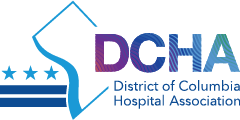
The District of Columbia Hospital Association is located in central downtown DC and is easily accessible by car or Metro.
DCHA is accessible via the McPherson Square Metro Station (Vermont Avenue exit) or the Farragut North Metro Station (L Street exit).
Parking is available in the building at the first alley on the left after you pass the office building at 1152 15th Street coming from L Street NW.
4 notes
·
View notes
Text
DCHA
The District of Columbia Hospital Association is located in central downtown DC and is easily accessible by car or Metro.
DCHA is accessible via the McPherson Square Metro Station (Vermont Avenue exit) or the Farragut North Metro Station (L Street exit).
Parking is available in the building at the first alley on the left after you pass the office building at 1152 15th Street coming from L Street NW.
#healthcare#healthsystem#healthprofessionals#healthservices#medicalcare#health professionals#health services#health systems#DCHA
0 notes
Photo

The District of Columbia Hospital Association works to advance hospitals and health systems in the District by promoting policies and initiatives that strengthens our system of care. To know more visit: https://dcha.org/who-we-serve/
1 note
·
View note
Link
The District of Columbia Hospital Association works to advance hospitals and health systems in the District by promoting policies and initiatives that strengthens our system of care. To know more visit: https://dcha.org/who-we-serve/
0 notes
Photo

DCHA are a unifying force working to advance hospitals and health systems in the District of Columbia by promoting policies and initiatives that strengthen our system of care, preserve access and promote better health outcomes for the patients and communities they serve. To know more visit: https://dcha.org/
3 notes
·
View notes
Link
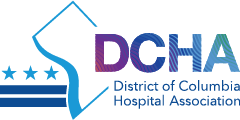
DCHA are a unifying force working to advance hospitals and health systems in the District of Columbia by promoting policies and initiatives that strengthen our system of care, preserve access and promote better health outcomes for the patients and communities they serve. To know more visit: https://dcha.org/
0 notes
Photo
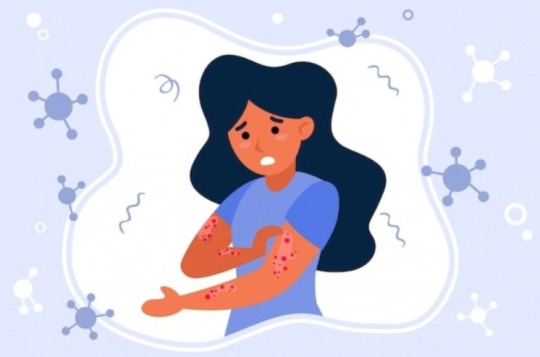
What are the standard infection control precautions?
Standard infection control precautions (SICPs) are the basic measures that health care workers should follow to prevent and control the spread of infections in health care settings. To know more viit here: https://healthcareserviceusa.blogspot.com/2023/04/what-are-standard-infection-control.html
2 notes
·
View notes
Text
What are the standard infection control precautions?
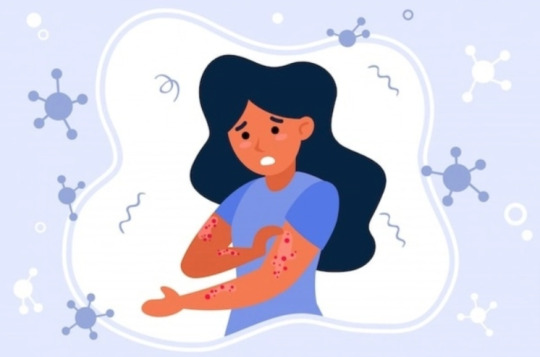
Standard infection control precautions (SICPs) are the basic measures that health care workers should follow to prevent and control the spread of infections in health care settings. To know more viit here: https://healthcareserviceusa.blogspot.com/2023/04/what-are-standard-infection-control.html
0 notes
Text
What are the standard infection control precautions?
Standard infection control precautions (SICPs) are the basic measures that health care workers should follow to prevent and control the spread of infections in health care settings. SICPs aim to protect both patients and staff from exposure to microorganisms that can cause infections, such as bacteria, viruses, fungi and parasites.
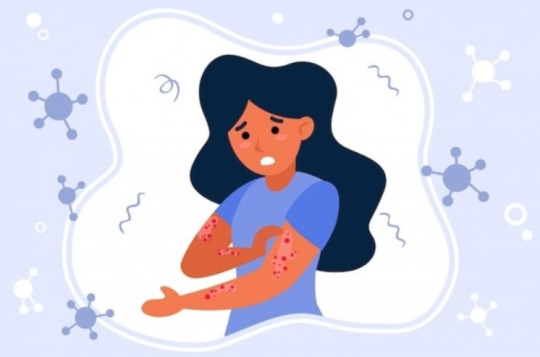
SICPs include:
- Hand hygiene: washing hands with soap and water or using alcohol-based hand rubs before and after contact with patients, their environment or any potentially contaminated items.
- Personal protective equipment (PPE): wearing appropriate gloves, gowns, masks, eye protection and/or face shields when there is a risk of contact with blood, body fluids, secretions, excretions or mucous membranes of patients or contaminated surfaces or objects.
- Safe use and disposal of sharps: using safety-engineered devices or techniques to prevent needlestick or other sharps injuries; disposing of used sharps in puncture-resistant containers; reporting and managing any sharps injuries promptly.
- Environmental cleaning and disinfection: cleaning and disinfecting frequently touched surfaces and equipment with approved agents; following manufacturer's instructions for use and dilution of disinfectants; ensuring adequate ventilation and air exchange in patient areas.
- Waste management: segregating infectious waste from non-infectious waste; using color-coded bags or containers; handling and transporting waste safely and securely; disposing of waste according to local regulations and policies.
- Linen management: handling soiled linen carefully and minimally; wearing PPE when handling linen; transporting linen in leak-proof bags or containers; laundering linen at high temperatures and with appropriate detergents; storing clean linen separately from soiled linen.
- Respiratory hygiene and cough etiquette: covering mouth and nose with a tissue or elbow when coughing or sneezing; disposing of used tissues in a bin; washing hands after coughing or sneezing; wearing a mask if symptomatic or if caring for a patient with respiratory symptoms; educating patients and visitors about respiratory hygiene and cough etiquette.
SICPs should be applied by all health care workers at all times, regardless of whether a patient is known or suspected to have an infection. SICPs should also be followed by patients, visitors and anyone else entering a health care facility. SICPs are the foundation of infection prevention and control (IPC) practices and should be complemented by transmission-based precautions (TBPs) when indicated by the type or mode of transmission of an infectious agent.
DCHA Elevates Quality Programs and Improves Patient Safety by Leveraging Subject Matter Experts from Across Member Hospitals
DCHA members created the Quality Collaborative (QC) in the last quarter of 2017 to support District of Columbia (DC) hospitals in their collective pursuit to become recognized leaders in high quality, safe and innovative patient care.
To know more visit:
DCHA Quality Collaborative
0 notes